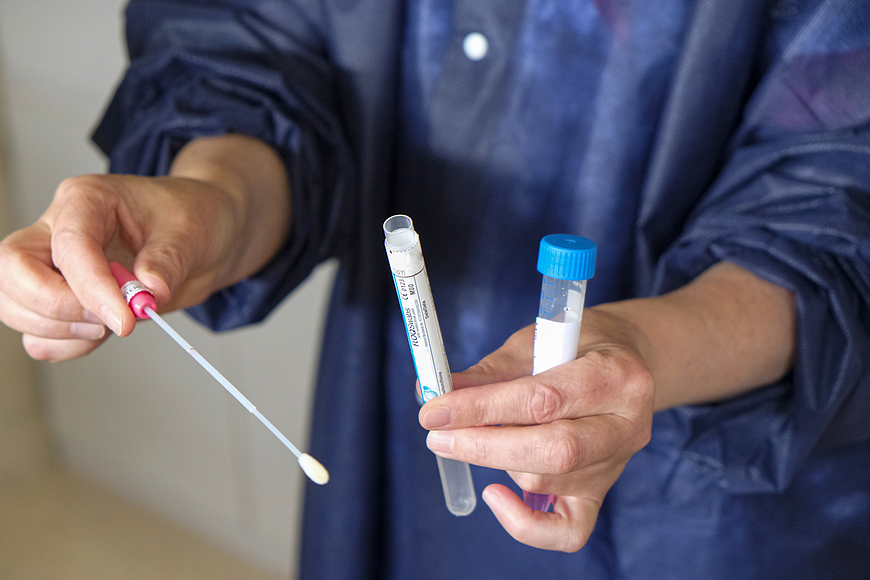- April 24, 2024
-
-
Loading

Loading

The omicron COVID-19 surge appears to have peaked in Florida and the nation as a whole, according to Florida Department of Health-Flagler Medical Director Dr. Stephen Bickel.
"It looks like we’re crested," Bickel said, after reading recent weekly Flagler County case numbers on Flagler Broadcasting's "Free For All Friday" on Jan. 21.
"To me, even before the numbers dropped, we're getting to the point where it’s hard to argue — this is my personal feeling — it’s getting harder and harder to argue that our policies should be different than how we deal with the flu," he said.
Flagler's weekly case numbers are down about 12% since last week's, Bickel said: 1,298 cases for the seven-day period ending Jan. 20, down from 1,469 cases for the week ending Jan. 13.
AdventHealth Palm Coast now has 44 COVID-19 patients and had had 101 during the delta peak, he said.
In Volusia County, there were 5,718 cases for the seven-day period ending Jan. 20, down from 7,465 for the period ending Jan. 13. Cases are also dropping in Putnam County and St. Johns County.
"Florida data are even more definitive: Florida was actually down 33% from 430,000 cases to 289,000," Bickel said. "That’s a substantial drop. The U.S. has also peaked."
The statistics in urban areas tend to shift more quickly than they do in more rural ones, he said.
During the delta wave, daily cases rates rose to about 25,000 and deaths peaked in the 400s per day. During this wave, daily case rates have risen to about 75,000 — "Which seems terrible," Bickel said, "but if you look at our death rate ... 67 was the peak, versus 426 with delta."
That's three times as many cases, but a fraction the number of deaths, he said.
There's still speculation about how much of that is due to omicron being milder, versus increasing levels of immunity in the population, he said.
"It's still kind of up in the air a little bit, because the population's so different; we have so much herd immunity now," he said.
That immunity isn't full immunity, because the immunity that worked for delta doesn't work completely for omicron, but it offers some protection, he said.
Things are different for people in a high-risk category, he said, but there are good therapies available, although patients have to work to access them: the monoclonal therapy Sotrovimab and the oral drug Paxlovid.
"If you're a high-risk parent, even if you're vaccinated, if you get COVID you should probably try to get them," Bickel said.
Information of vaccination and testing is available at the Florida Department of Health-Flagler website, and information on monoclonal therapy is available at https://floridahealthcovid19.gov.